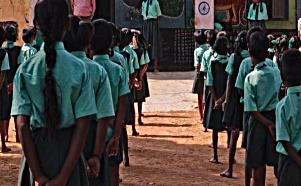TN Schools To Hold Monthly Assessments For Students Of Classes 1 To 9
The initiative, announced through a circular from the School Education Department, is designed to move children away from rote learning and towards deeper conceptual understanding.
The tests will feature Higher Order Thinking (HOT) questions that encourage critical reasoning, problem-solving and application of knowledge. Officials said the move will also help students gain confidence for competitive examinations in the future.
The State Council of Educational Research and Training (SCERT) will set the question papers, which will then be sent to District Institutes of Education and Training (DIETs) and distributed to schools through the respective Chief Education Officers (CEOs).
The monthly assessments will cover English, Mathematics, Science and General Knowledge.
Teachers have been asked not to treat the tests as a mere evaluation exercise but to use them as teaching tools.
After every test, subject teachers must discuss the questions and answers in detail with their students to clarify doubts and strengthen understanding.
The department has also instructed district-level officials to carry out inspections and ensure the assessments are conducted in a structured and transparent manner.
Previously, monthly tests were held only for Classes 6 to 9. By extending them to Classes 1 to 9, the government aims to provide children with an early foundation in analytical and conceptual skills.
Officials said the initiative aligns with the State Education Policy (SEP), which stresses holistic learning and preparing students for both higher education and employment.
The decision follows worrying findings from the State Level Achievement Survey 2025, which revealed large learning gaps among schoolchildren.
Conducted for Classes 3, 5 and 8, the survey showed average scores of 52 per cent in Tamil, 39 per cent in English, 38 per cent in Mathematics, 37 per cent in Science and 54 per cent in Social Science.
Mathematics and Science emerged as the weakest subjects, prompting the government to adopt corrective steps.
Education officials believe that regular assessments, combined with classroom discussions and monitoring, will help bridge these gaps and ensure that students develop the skills needed to compete in an increasingly knowledge-driven world.

Legal Disclaimer:
MENAFN provides the
information “as is” without warranty of any kind. We do not accept
any responsibility or liability for the accuracy, content, images,
videos, licenses, completeness, legality, or reliability of the information
contained in this article. If you have any complaints or copyright
issues related to this article, kindly contact the provider above.
Most popular stories
Market Research

- Microgrid Market Growth, Key Trends & Future Forecast 2033
- Nickel Market Estimated To Exceed USD 55.5 Billion By 2033
- Primexbt Launches Empowering Traders To Succeed Campaign, Leading A New Era Of Trading
- Chaingpt Pad Unveils Buzz System: Turning Social Hype Into Token Allocation
- Ecosync & Carboncore Launch Full Stages Refi Infrastructure Linking Carbon Credits With Web3
- Japan Halal Food Market Size To Surpass USD 323.6 Billion By 2033 With A CAGR Of 8.1%






















Comments
No comment